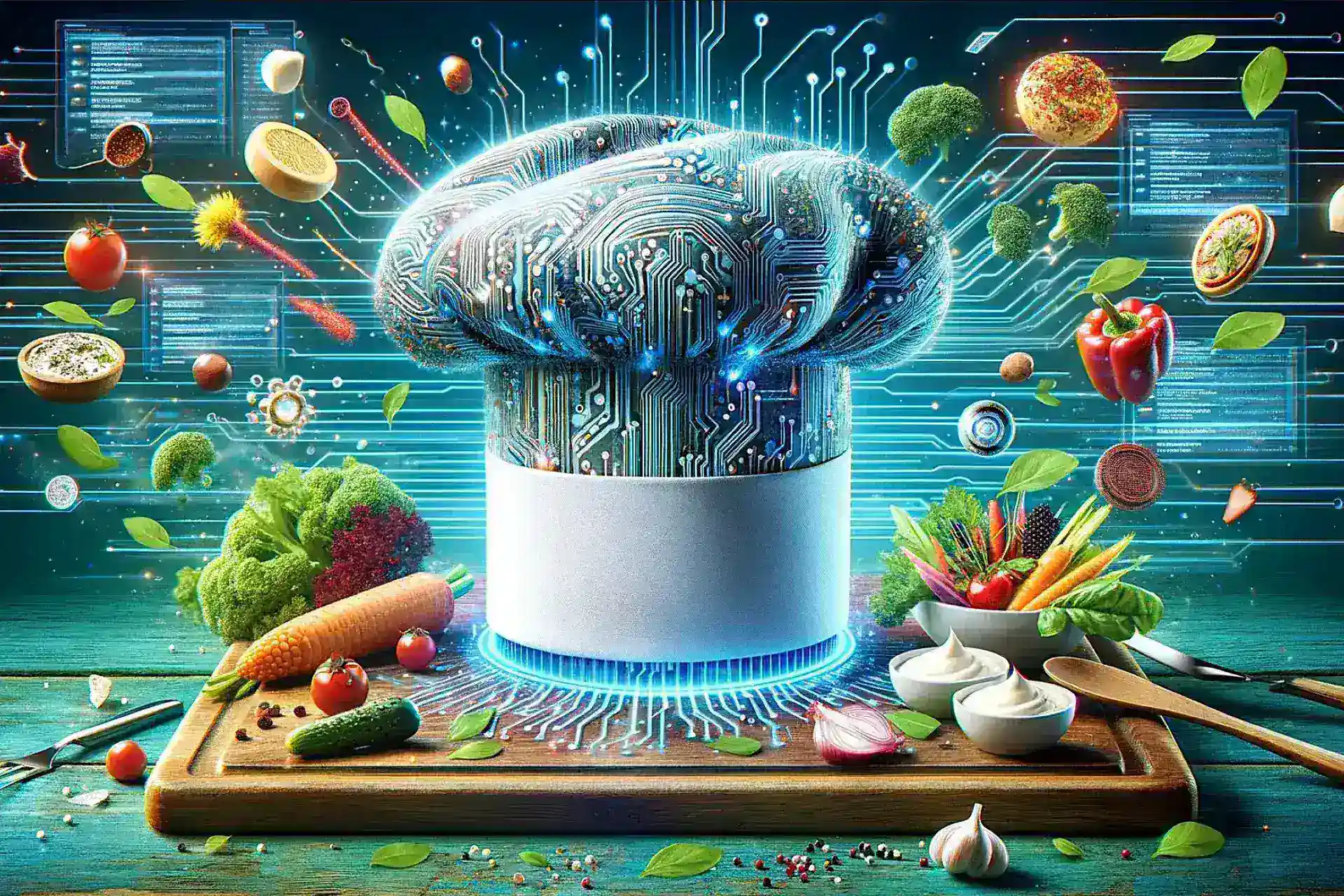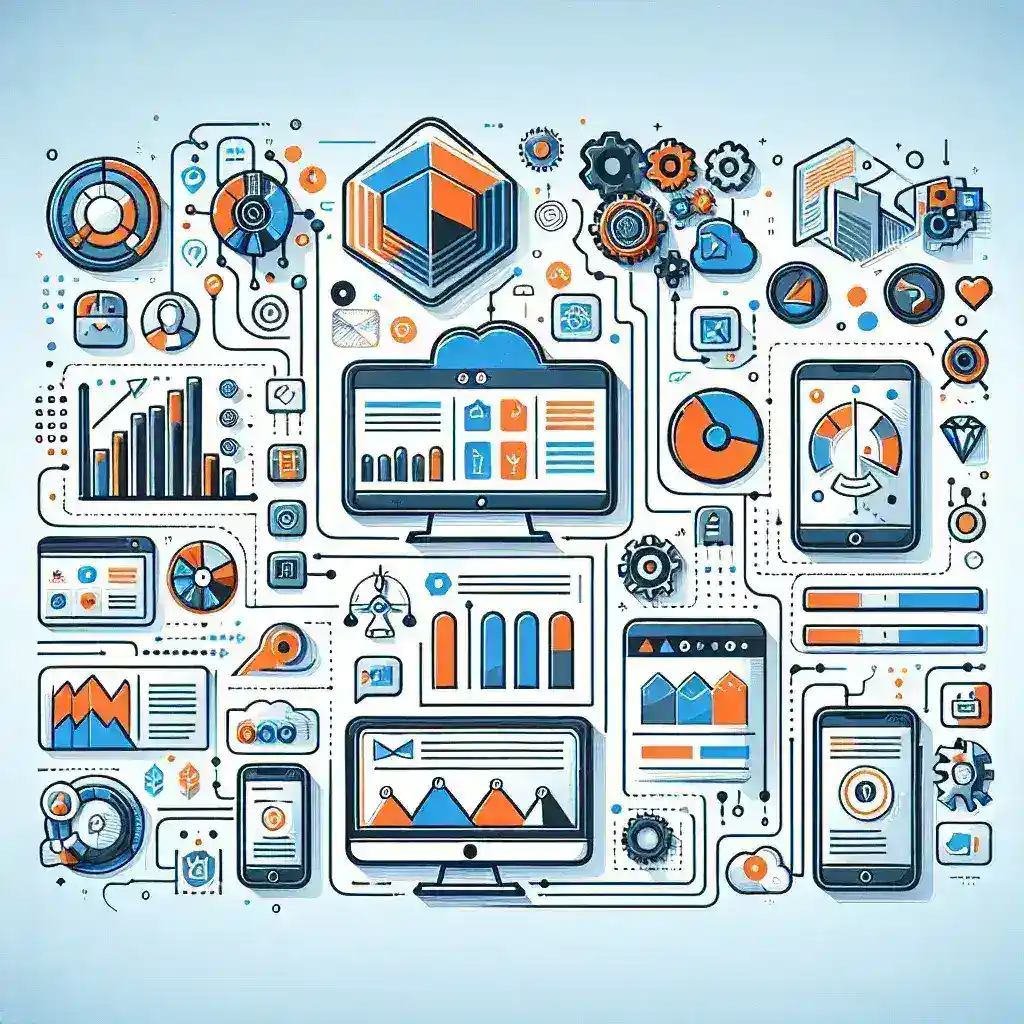The integration of Artificial Intelligence (AI) into various industries has led to transformative changes, and personal nutrition is no exception. AI’s ability to analyze data, detect patterns, and provide personalized recommendations is revolutionizing how individuals approach their diets. By leveraging data from genetic information, lifestyle habits, and real-time biometrics, AI is paving the way for more customized, efficient, and sustainable nutrition strategies. This article delves into the multiple ways AI is reshaping personal nutrition and what the future holds for this innovative convergence.
AI in Personalized Nutrition: An Overview
AI’s impact on personal nutrition is profound. Traditional dietary guidelines have been generalized, offering recommendations based on average nutritional needs. However, these one-size-fits-all approaches often fail to account for individual variances such as genetics, activity levels, or specific health conditions. AI allows for a more nuanced, personalized approach by:
- Analyzing large datasets from various sources.
- Using machine learning algorithms to refine dietary advice over time.
- Providing real-time feedback based on biometric data such as blood glucose levels or heart rate.
These advancements make it easier for individuals to adopt and maintain healthier eating habits tailored to their unique needs.
Data Sources for AI-Driven Nutritional Insights
AI relies on diverse data sources to generate personalized nutrition recommendations. The most common include:
1. Genetic Data
AI can analyze genetic information to determine how one’s body metabolizes certain nutrients, their predisposition to specific health conditions, and potential food sensitivities. Companies offering direct-to-consumer genetic testing can now combine this data with AI to offer targeted dietary suggestions.
2. Wearables and Real-Time Biometrics
Smartwatches and fitness trackers gather real-time data on physical activity, sleep patterns, and heart rate. AI can process this information to recommend adjustments in diet that align with daily energy expenditure, recovery needs, and stress levels.
3. Health Records and Medical Data
Medical history and ongoing health concerns, such as diabetes or high cholesterol, are also factored into AI-driven nutrition platforms. With access to electronic health records, AI can tailor nutrition plans that help manage or prevent chronic conditions.
| Data Source | Type of Data Collected | AI Application | Examples |
| Genetic Data | DNA, gene expression | Personalized nutrient metabolism analysis | 23andMe, AncestryDNA |
| Wearables | Activity, sleep, biometrics | Real-time diet adjustments | Fitbit, Apple Watch |
| Health Records | Medical history, lab results | Chronic disease management and prevention strategies | Electronic health records (EHRs) |
AI-Powered Nutrition Apps and Platforms
The development of AI-powered nutrition apps and platforms has gained significant traction in recent years. These tools are reshaping how individuals interact with their dietary habits by offering highly customized meal plans, tracking food intake, and providing feedback. Here are some key features of AI-powered nutrition apps:
1. Personalized Meal Planning
AI can recommend meals based on dietary preferences, health goals, allergies, and more. Unlike generic meal plans, these are tailored to an individual’s unique needs, including calorie count, macronutrient ratios, and food preferences.
2. Food Recognition and Tracking
Many AI-powered apps allow users to take photos of their meals, which the AI can recognize and classify. This simplifies the tracking of food intake and nutrients, offering real-time data about portion sizes, calorie content, and nutritional balance.
3. Nutrient Optimization
AI analyzes a user’s diet to identify nutrient deficiencies or excesses and suggests modifications. Whether someone is missing essential vitamins or consuming too much sugar, the app provides actionable advice.
4. Integration with Wearables
AI-powered platforms are often integrated with fitness trackers and other wearable devices, using biometric data to offer more dynamic and timely dietary adjustments.
| Feature | Benefit | Example Platform |
| Personalized Meal Planning | Tailored to individual health goals and preferences | Noom, Lifesum |
| Food Recognition and Tracking | Simplifies tracking of intake and nutrient analysis | Lose It!, MyFitnessPal |
| Nutrient Optimization | Identifies deficiencies and excesses | Nutrino, Cronometer |
| Integration with Wearables | Provides real-time dietary adjustments | Fitbit, Garmin |
AI’s Role in Dietary Recommendations for Chronic Disease Management
One of the most significant contributions of AI in nutrition is in managing chronic diseases. Conditions such as diabetes, hypertension, and heart disease require careful dietary monitoring. AI excels in this space by:
- Continuously analyzing health data (e.g., blood sugar levels in diabetics).
- Recommending specific foods to manage conditions (e.g., low-sodium diets for hypertension).
- Offering real-time alerts when certain dietary thresholds are crossed (e.g., high sugar intake).
For individuals with chronic conditions, AI systems can predict how certain foods will affect their health in real time. This level of precision allows for more proactive management of conditions, helping prevent complications.
AI and Nutrigenomics: Tailoring Diets to Genetics
Nutrigenomics refers to the study of how food interacts with genes, affecting health outcomes and disease risk. AI plays a pivotal role in advancing nutrigenomics by analyzing genetic data and offering personalized dietary recommendations based on an individual’s genetic makeup. Here’s how AI and nutrigenomics work together:
1. Gene-Diet Interaction Analysis
AI can examine how certain genes affect the metabolism of specific nutrients. For example, some individuals may have a genetic predisposition to metabolize caffeine more slowly, leading to increased anxiety or sleep disturbances. AI-powered platforms can recommend a lower caffeine intake for these individuals.
2. Predictive Disease Prevention
Certain genetic markers indicate a higher risk for diseases like obesity, diabetes, or heart disease. AI analyzes these markers and suggests dietary interventions that could mitigate the risks. For instance, a person with a higher risk of heart disease might be advised to follow a Mediterranean diet rich in healthy fats.
AI’s Impact on Nutritional Research and Food Science
AI is not just influencing personal nutrition but also contributing significantly to nutritional research and food science. By processing vast datasets quickly, AI can:
- Identify emerging trends in food consumption and public health.
- Analyze the long-term effects of certain diets on health outcomes.
- Simulate various food combinations to develop healthier, more nutrient-dense products.
For instance, AI is being used in the food industry to create plant-based alternatives that mimic the texture, flavor, and nutrient profile of traditional meat products. This is crucial as the demand for sustainable, nutritious, and eco-friendly food options grows.
Real-Time Adjustments to Diet Plans Using AI
AI’s real-time data processing capabilities allow for the continuous optimization of diet plans. With wearable devices tracking everything from heart rate variability to hydration levels, AI can adapt dietary recommendations throughout the day. For example:
- Post-Workout Nutrition: After a high-intensity workout, AI might suggest increasing protein intake to aid muscle recovery.
- Stress-Related Dietary Adjustments: If wearable data shows elevated stress levels, AI could recommend foods rich in magnesium or antioxidants to help alleviate stress.
- Hydration and Electrolyte Balancing: AI might track hydration levels and suggest increasing water or electrolyte intake during hot weather or after heavy exercise.
| Situation | AI Adjustment | Nutritional Advice Example |
| Post-Workout Recovery | Increase protein intake | Consume 25g of protein within 30 minutes post-exercise |
| Elevated Stress Levels | Suggest magnesium-rich foods | Eat leafy greens, nuts, and seeds |
| Dehydration Risk | Boost hydration and electrolytes | Drink electrolyte-infused water |
Ethical and Privacy Concerns in AI-Driven Nutrition
While the integration of AI in nutrition offers numerous benefits, it also raises ethical and privacy concerns. AI systems collect a significant amount of sensitive data, including genetic information and medical records, which could be vulnerable to misuse or breaches. The key ethical concerns include:
1. Data Privacy
AI platforms often gather and store large amounts of personal health data. There are growing concerns about who has access to this data and how it is used. Ensuring data is encrypted and anonymized is crucial for protecting users’ privacy.
2. Algorithm Bias
AI systems are only as good as the data they are trained on. If the datasets used to develop AI-driven nutrition platforms lack diversity, the recommendations may not be suitable for all demographic groups, leading to biased or ineffective guidance.
3. Over-Reliance on AI
While AI offers highly personalized nutrition advice, it should not replace professional medical guidance. Individuals must balance AI-generated suggestions with expert opinions from nutritionists or healthcare providers to ensure optimal results.
Future of AI in Personalized Nutrition
As AI technology continues to evolve, its role in personal nutrition is expected to grow exponentially. The future could see the following advancements:
1. AI-Driven Gut Microbiome Analysis
The gut microbiome plays a significant role in overall health and nutrition. Future AI systems could analyze gut bacteria and provide personalized dietary recommendations aimed at improving gut health and preventing disease.
2. AI and Emotional Eating
AI could be used to detect emotional patterns and their effects on eating habits. By recognizing when stress or emotional triggers lead to poor food choices, AI can offer healthier alternatives or interventions to manage cravings.
3. AI-Assisted Grocery Shopping
Imagine a future where your AI assistant curates a shopping list based on your dietary preferences, current pantry stock, and health goals. AI could analyze available products in real-time, recommending healthier options while considering sustainability and price.




